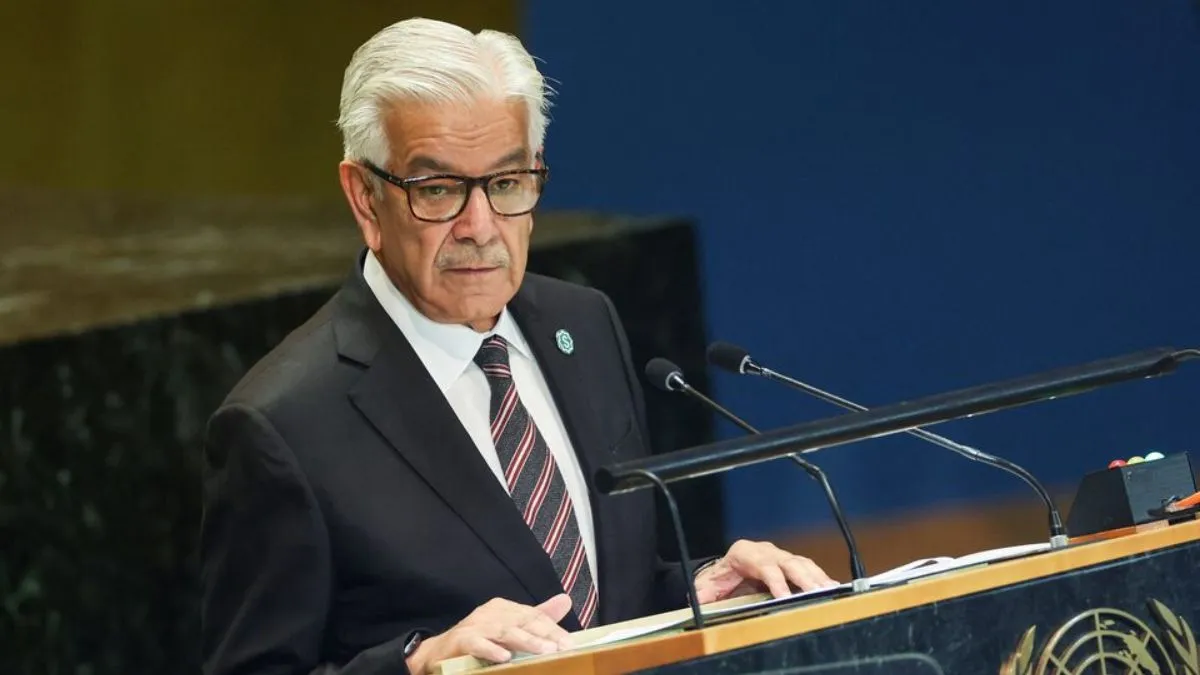In a dramatic and controversial statement, Pakistan Defence Minister Khawaja Asif has blamed the nation’s premier bureaucrats for large-scale corruption and illegal money laundering. Posting on X (formerly Twitter) on Wednesday, Khawaja Asif released a viral statement that has ignited outrage in political and civil society ranks. He said known bureaucrats who amassed huge amounts of money in their service period are now “comfortably enjoying a retired life” in Portugal. “More than half of the bureaucracy of our dear homeland has already acquired property in Portugal and is preparing to obtain citizenship,” Asif stated, calling it a betrayal of public trust.
The Defence Minister didn’t stop there. In a direct swipe at the Punjab bureaucracy, Asif alleged that a senior bureaucrat reportedly close to former Punjab Chief Minister Usman Buzdar received a staggering Rs 4 billion in ‘salami’ (ceremonial gifts) during his daughters’ weddings. He implied that such opulence, funded by public corruption, has become normalised within the civil service.
Asif also complained of the difference in accountability between bureaucrats and politicians, saying that “politicians only get the leftovers” and yet get accountability through elections. “It is a systemized and intercontinental money-laundering model which employs Gulf-EU corridors, with the real estate market of Portugal and golden visa routes as especially valued instruments,” an Indian intel official said to CNN-News18. They claimed that Asif’s confession could be a move to divert global watchdog attention away from military and intelligence segments and draw attention to civil bureaucratic abuse instead.
ALSO READ: Is Pakistan’s Army Chief Asim Munir Set To Become Next President? Military Breaks Silence
These allegations are made at a time when concerns over inclusion in the FATF grey lists are increasing for Pakistan, and there is increased international pressure for money laundering. According to top Indian intelligence sources cited by CNN-News18, this situation represents a “classic case of elite asset laundering under diplomatic immunity.” They claim that Portugal was chosen deliberately as a “low-risk FATF blind spot,” compared to jurisdictions like the UAE or UK, which now face stricter regulations.
ALSO READ: Pakistan Aims For Moon By 2035 With China’s Help, Sets Ambitious Lunar Mission
“This is a systematic and intercontinental laundering model that uses Gulf-EU corridors, particularly leveraging Portugal’s real estate market and golden visa pathways,” an Indian intelligence official told CNN-News18. Corruption in Pakistan has been a systemic problem for years, affecting all arms of governance — from elected leaders to civil servants, judiciary, and law enforcement agencies. Public trust remains in decline with regular scandals, a lack of transparency, and limited accountability.
